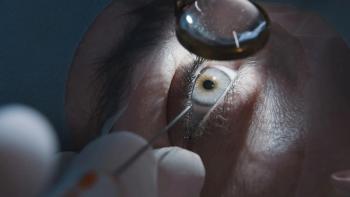
AAOpt 2024: Honing in on epigenetics
Roya Attar gives an overview of her presentation, "Decoding the Retina: The Value of Genetic Testing In Inherited Disorders," presented with Mohammad Rafieetary, OD, FAAO, FORS, ABO, ABCMO.
Roya Attar, OD, MBA, DHA, discusses the importance of genetic testing and inherited retinal disorders, as presented at the American Academy of Optometry 2024 meeting. Attar is the chair of the retina special interest group and presented a course that provides an overview of genetic testing and inherited retinal disorders, with a focus on epigenetics. She explains that epigenetics focuses on what causes certain manifestations of different genes, as the genetic blueprint can be upregulated to manifest more extremely in some individuals and not at all in others. She is also looking forward to the upcoming 2025 Retina and Glaucoma Collaborative Summit, where there will be education on topics such as genetic testing and its value.
Attar emphasizes that many eye care professionals are unaware of the availability of genetic testing and the diseases that can be identified through it. She explains that genetic testing can be beneficial not only for identifying the disease state but also for allowing patients to participate in clinical trials for new therapies. Many companies offer free genetic testing, and the results can be uploaded into databases, enabling companies to identify individuals for potential clinical trials. Attar stresses the importance of eye care providers, whether ophthalmologists or optometrists, in initiating genetic testing for patients, especially those with rare or unexplained eye conditions. She explains that dedicated clinics exist for inherited retinal disorders, and genetic testing can help identify specific genes that can be treated to prevent further vision loss.
The key takeaways from the discussion are the value of genetic testing, the availability of free testing through organizations like the Foundation for Fighting Blindness, and the importance of discussing epigenetic factors, such as lifestyle choices, with patients to help mitigate the impact of their conditions.
Newsletter
Want more insights like this? Subscribe to Optometry Times and get clinical pearls and practice tips delivered straight to your inbox.













































